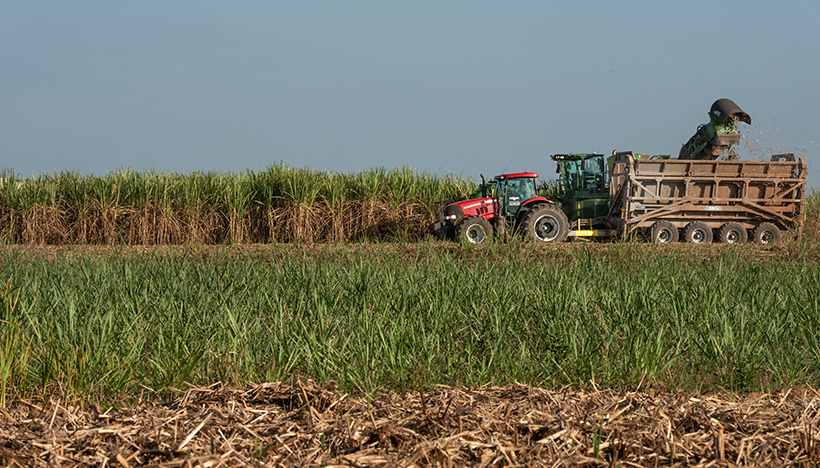Case study Supporting incentives for advanced biofuels
Biofuels are a renewable energy source, made from organic matter or waste, which can significantly reduce CO2 emissions from transport. Biofuels are blended with other fuels such as gasoline and diesel. They can help decarbonise the aviation, marine and heavy-duty road transport sectors. Governments can use instruments like tax incentives to encourage investment in the development and production of biofuels.
Most biofuels are produced from agricultural crops, such as corn, sugar cane or vegetable oil. However, there is an opportunity to increase low-carbon biofuels production without increasing land use. With this purpose, we are focusing on using new technologies to produce advanced fuels from alternative feedstocks – such as forestry products and agricultural waste (otherwise known as cellulosic materials, meaning they come from the fibrous walls of a plant structure).
Our Raízen biofuels joint venture with Brazilian energy company Cosan (Shell economic interest 44% with 50% voting rights) began production of second-generation ethanol (E2G) in 2015. This plant produced around 24 million litres in the 12 months to March 2021.
Government support is a key driver for the growth of advanced biofuels and we advocate a policy framework that encourages investment. We believe that any new biofuels policies should include:
- Financial support and targeted incentives for investment in the construction of advanced biofuels facilities.
- Price support for a limited amount of time. Support could include exemption from fuel excise duties typically applied to traditional fossil fuels.
- Different and preferential customs tax treatment in cross-border movements of advanced biofuels compared with traditional fossil fuels.
- Targeted incentives for manufacturers in hard-to-abate sectors (aviation, marine, heavy-duty road transport) to develop propulsion technologies that can use higher levels of biofuels than today.









